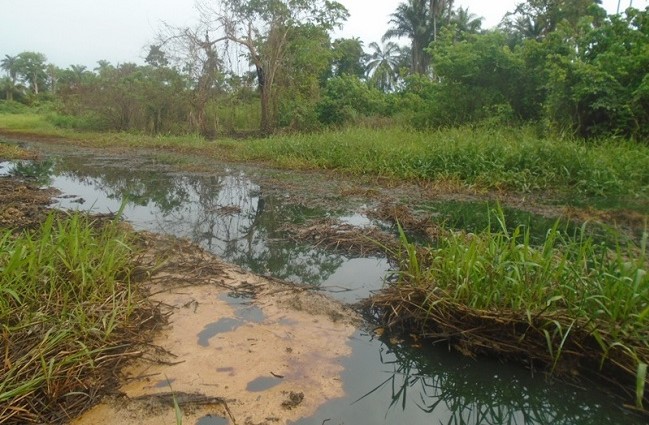Some environmentalists have said that more holistic, strategic, participatory and enforceable environmental sustainability measures will engender the possibility of a cleaner and healthier environment.

The environmentalists made the assertion on Thursday, April 15, 2021 at the Institute of Directors (IoD), Port Harcourt Branch, stakeholders’ forum with the theme: “Environmental degradation issues and the way forward.”
Dr Ferdinand Giadom, Senior Lecturer, Department of Geology, University of Port Harcourt, said that a degraded environment threatened wealth, health, amenities and ultimately the survival of life, leading to a confused and dysfunctional society.
Giadom said that petroleum hydrocarbons, a contaminant in the Rivers environment, contained benzene, a carcinogen known to cause leukaemia and other harmful effects to the lungs, kidneys, hormones and birth defects.
He recommended a state-wide inventorisation and characterisation of oil contaminated sites, toward the clean-up, remediation and restoration of the contaminated sites.
Giadom said the approach should involve short and long-term objectives aimed at addressing the major environmental health challenges, predicated on cooperation, partnership and coordinated implementation of well-defined actions.
“The communities bear the brunt of environmental degradation wrought by oil and gas exploration and exploitation activities in Rivers State.
“Therefore, local people should be consulted as stakeholders in decision making and activities that bordered on their livelihood, environment and heritage.
“This will engender a sense of resource ownership and respect to a people so richly endowed yet made so poor by the circumstances in which they find themselves,” he said.
Giadom noted that the responsibility in resolving the environmental health crisis currently being faced in Rivers and the Niger Delta rested on the academia.
Mr Christian Onogba, the Delta State Commissioner for Environment, said that government had over the years committed huge resources into the environment, with minimal results.
Onogba attributed the current realities of the region to the lack of consciousness to a clean environment, necessary to overcoming the challenges posed by an unclean one.
He called for the establishment of stiffer measures aimed at compelling every Nigerian to start planting trees to replenish the already degraded environment.
“The consciousness of having a clean environment is not with us yet so we need to take ownership of the environment to overcome the challenges of the environment.”
Also, Mr Jesse-Martin Manufor, Head, Environment Stakeholders Democracy Network, called for the review of legislations to address the loopholes the current obsolete legislation guiding the environment provided.
In his remarks, Mr Chris Okunowo, President, IoD, noted that economic activities and growth as a nation was at a cost to the Niger Delta environment and the country at large.
Okunowo said years of non-compliance with environmental laws and policies had resulted in massive air and water pollution and vast areas of hydrocarbon-contaminated lands and attendant negative consequences.
“We hope to raise awareness and understanding of the environment dimension of sustainable development issues in Nigeria.
‘’And facilitate information-sharing on environmental issues among policy makers, private sector actors and civil society representatives,” he said.
By Rukayat Moisemhe
